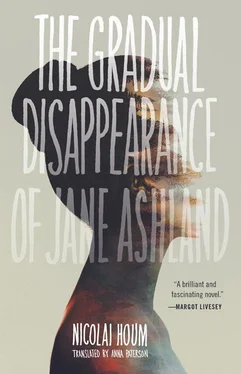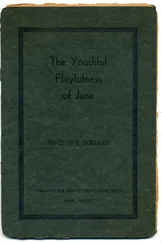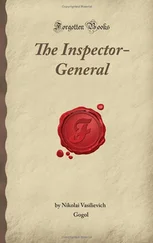As parents they were novices, and shameless with it. The first time Greg did Julie’s diapers, she was lying safely on a changing table with high edges but he still carried out the whole procedure with one hand while keeping his other hand gently on the baby’s chest.
“She won’t levitate,” Jane said.
“How do you know?” Greg said.
He took the next day off: sneaked out of his office at the Wisconsin State Journal after dashing off some copy for the entertainment pages, and battled his way past a multiple-car crash on Beltline Highway, all in order to get to the hospital before the end of the evening. Jane had been struggling to stay awake and had to force her head out of her dream world to be kissed by Greg.
“On the way up, I met a hospital clown in the elevator,” Greg told her.
“You did what?” she said in a voice still muffled by sleep.
“The hospital clown. I was chatting with him in the elevator.”
“Why?”
“Why not?”
Then Greg grew quiet. She settled back into the bed and closed her eyes.
“Seems he wondered when we’d have time to see him,” he added.
“Are we to see him?” she mumbled.
“Oh, yes. He was emphasizing how important it is to lay the foundations of a humorous mindset at an early stage.”
“Gosh!”
“Yup,” Greg said and breathed in, as he always did in the middle of explaining something. “I think the idea is rather like the skin-on-skin program at St. Mary’s but more focused on the newborn’s social skills.”
She sat up in bed and rubbed her eyes.
“Well, maybe tomorrow, unless you have to…”
Then she discovered that Greg was beside himself with suppressed laughter and reached out across the bedside table to smack him.
Her bed was in the so-called family room, but Greg wasn’t allowed to stay the night. There were no set visiting hours, but late at night a change in atmosphere somehow communicated to the visitors that the mothers would soon be due for a period of whispering peace. She wanted Greg to stay all the time and he didn’t want to leave them. He held Julie close to his chest. His hair was still almost shoulder-length—that, and his tattoos, signified his last stand against becoming a grown-up and a career journalist—and as he bent his head over Julie to inhale her scent, father and daughter disappeared behind the dark curtain of his hair.
“Cruelty to children is impossible to understand,” Greg said in a low voice.
There was enough space in his hand for Julie’s foot. Julie’s toenails fascinated her parents perhaps more than any other part of her. They were so tiny it seemed out of order not to believe in God.
“I used to regard images of suffering children as a hackneyed media device. Now, I’m glad I’m writing about culture rather than working on the news desk,” Greg said. “I start crying now every time I see suffering children on TV.”
“Do you, truly?”
“Last time was yesterday,” Greg said and swallowed.
He hesitated before starting to speak again. “Imagine, my father beat me up.”
Greg still sounded as if it had happened recently. He had told her about his boyhood while they were still in New York. Mainly, the punishments had amounted to little more than slaps on the behind. Once, when Jeff went outside in a blizzard wearing only his pajamas and Greg locked him out, a wire clothes hanger had been used.
“How come it’s possible?” Greg demanded in a choked voice. “What I mean is… the entire system of parental rule. Kids were hangers-on. Parasites, with restricted rights. We didn’t have any say. Ran our childish world according to our own system. And it mustn’t clash at any time with the much more important adult world.”
“True,” she said.
“Of course, it was still worse to be a child in the fifties when our parents were growing up. Not to speak of the childhoods our grandparents had to put up with!”
The blanket slipped from Greg’s arm. Jane wrapped it around Julie again.
“For instance, historians believe that Adolf Hitler was economical with the truth in Mein Kampf when he describes his father’s brutality. It was probably much worse. You wouldn’t credit it but this was the time when an Austrian expert pedagogue recommended hitting babies hard, for no reason—except to toughen them up!”
“Greg, why are we talking about Hitler?”
“I don’t know.”
She pulled Greg close and kissed him. She felt that they both had softer, warmer lips than before. But then Greg backed away and continued stubbornly. “No, I do know. The answer is: Because I want us to do it differently. To be another kind of parent.”
And so they were. Jane and Greg felt they belonged to the first generation of parents who regarded their children as complete human beings, held them in correspondingly high regard and thought so hard about their role that they were in a state of constant confusion. But the light never faded; it was like a flame that lit up days and nights. They had changed. Still, Jane was wrong to believe that the outside world would have changed, too. It caused just as many problems as ever and now there was a new source: Julie.
During Julie’s childhood, Jane found herself going through compulsive rituals when no one was watching. There was a special time just before she fell asleep next to Greg. She saw things in her mind: steep stairways, a butcher’s knife near the edge of the kitchen counter, the rusty bracket on a swing in the park. Such images forced her to reach out with her hand in the darkness to knock on the bedside table. In case Greg hadn’t gone to sleep, the movement had to be disguised as fumbling for something on the table but must also be completed to fit the proverb: the knocking finger must touch wood. This often meant that the hand pretending to look for, say, the cell phone charger, had to move a box of tissues or a magazine to get at the actual tabletop.
She pondered the borderline between superstition and compulsion. The ancient human need that led people to convince themselves there was a system where none existed. The lengths to which people would go to make believe they could control the universe. She also wondered about how many others went in for behaviors like hers. Perhaps men and women everywhere in the US were lying awake in bed at night, knocking on bedside tables, quickly switching lights on and off (if they were alone), clapping or snapping with their fingers under the covers, or hitting their hip bones rhythmically while saying: don’t let it happen, don’t let it happen, don’t let it happen. All this, to save the one they loved.
As time went by, Jane became aware that her daughter could enrage her so much that she said and did things she would later regret bitterly. As it happened, these things were often said or done just when Julie was about to be left with her babysitter, or when Jane was going away for several days, which meant that she remained in a state of anguished self-reproach until she could once more hug her daughter tight and have the chance to make it up to her. On her way home from literary events and book readings, she would jump into taxis, zigzag across the airport to avoid business travelers and overweight tourists from the Midwest, drive all the way home in the left-hand lane on the highway, taking the corner of Spooner Street and Regent Street on screaming tires—only to be told by Greg that Julie had just fallen asleep.
Julie was eleven when Jane realized that one of her rather slim novels was receiving unexpectedly enthusiastic attention. Greg called it a great breakthrough , but that was of course an exaggeration. The Age of Plenitude was in every way as demanding as her earlier books and as focused on language. Even so, it sold more copies than all her previous titles put together. Her editor said that was because it was so fucking excellent . Jane thought, although she kept it strictly to herself, that the cover had done the trick: it showed a woman on a beach just before the trend that placed woman-on-a-beach images in a special category of successful cover designs. She celebrated Greg’s fortieth birthday, luckily more than a year before her own, by buying him an eighteen-foot fishing boat, a trailer, and all available accessories for sport fishing. She joined him on trips a couple of times because she wanted to experience his happiness at being on board next to a cooler stocked with bottles of beer and an echo sounder display of flickering pixels, which might or might not be fish. Greg’s most faithful companion on fishing trips was none other than Tom Belotti, Jane’s admirer when they were at school. Tom had also moved to Madison and eventually become an especially good friend to both of them. He had married a Russian nurse with nearly transparent teeth, who could look about seventeen one moment and fifty-five the next. You were asked to believe a backstory about Vladlena (what joy, just to say her name…) that involved a wild party at the Russian embassy and a love that conquered every barrier of language and culture placed in its way. This story was about as credible as young Tom’s tale about the white shark that lived in the filter system of the public swimming pool in Brookfield and was let out for exercise a couple of times a year. Tom had spotted Vladlena for the first time in an online catalog of Russian women wanting to marry. But they seemed happy together.
Читать дальше












